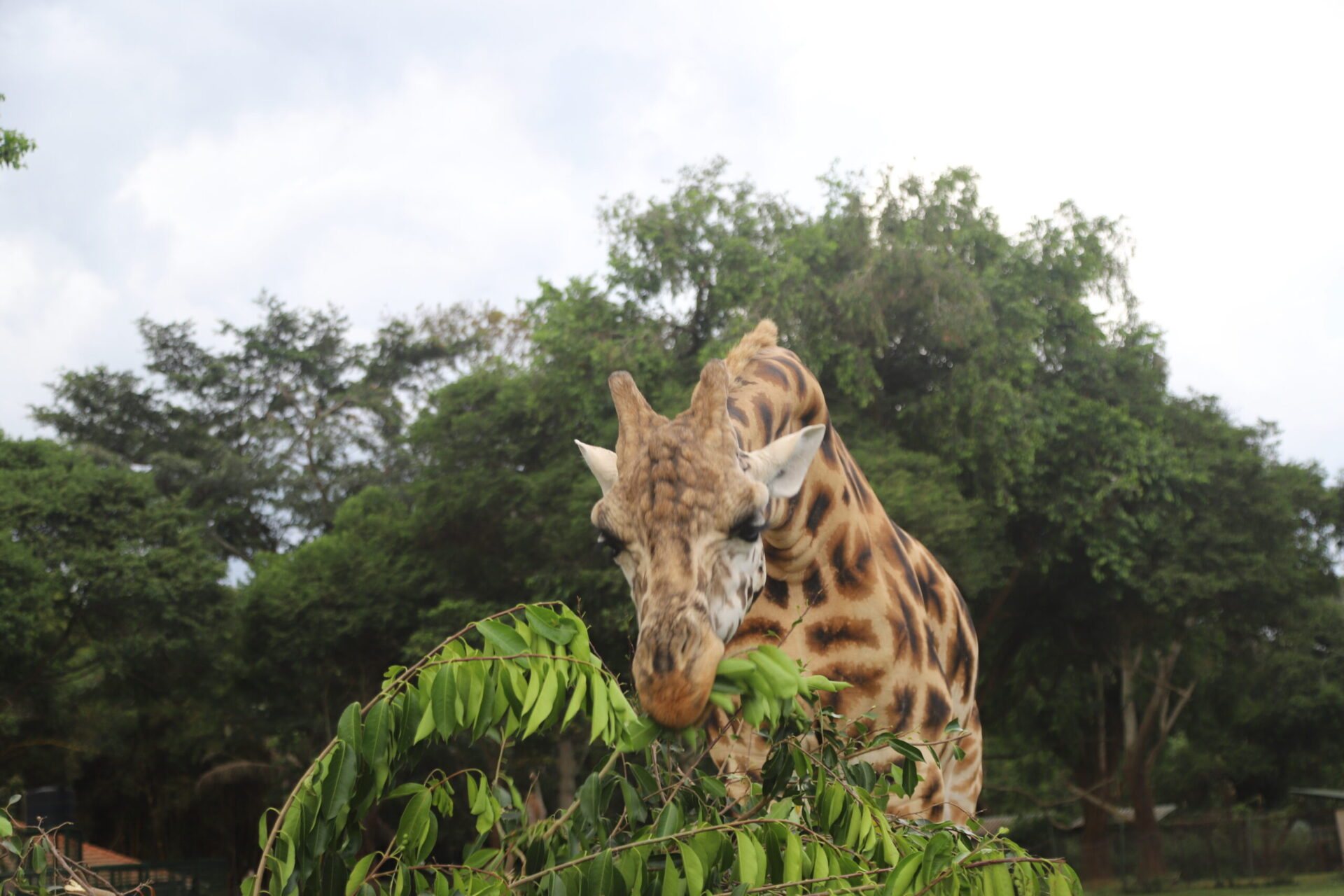
Importance of animal training to a zookeeper
Most of us have the mentality to say animal training program mostly benefits the animal in mental stimulation however it’s beneficial to us as Zookeepers just like to animals. This was my experience working with animals and participating in their training where I particularly dealt with Pian and Upe the cheaters at Uganda Wildlife Conservation Education Centre (UWEC).
Working with animals can be frustrating and sometimes even challenging. Zoo management do not eliminate these animal-related problems because they are thought to be manageable and to offer opportunities for youth to practice and experience self-control, patience, calmness, and self-awareness. Animal training can be challenging for both novice and experienced participants, especially those with anger control and attention deficit disorders. Almost all new participants get frustrated with the basics of animal training, as one recalled: “When I first started here, I didn’t know what was going on. I would get frustrated like this. I would say, Pian Upe, and they wouldn’t listen to me. They just sat there and looked at me. And Jenny (my co-trainer) had a smile on her face; she said that’s what they do when they don’t t listen to you.” However, even experienced participants can find it frustrating to train new animals. One zookeeper with some good years of animal training experience said: “Once you train them to a point, like “kabira and sherino the rhinos”, then it is easy. You can fly through all the commands and everything. But then when you have to start at the beginning with these guys they don’t listen…You say, ‘stay,’ they look at you. You walk away and when you come back they are way over there and stuff. They run around. So it gets frustrating.” Another zookeeper went so far as to describe animal training as a “battle.” He said: “It’s a constant battle for you and the animal because you are just trying to get the animal to listen to you and do what it is supposed to. And it’s sitting there trying to spite you and say that it is in charge. I mean, it gets a little annoying at times.”
Most participants learn to manage the frustrations posed by animal training and care. They learn, in a practical sense, not to let their aggravation get the best of them because it just makes animal training that much harder. For instance, one of the zookeepers at UWEC who had a big struggle” with patience learned to “stop himself” from getting angry by realizing that “it’s just an animal, calm down. It doesn’t know any better.” Some Zookeepers say that if they are angry and they try to train their animal, the animal will sense this and “shut down and not want to work for you.” Instead, they learn to be patient with their charges because teaching an individual behavior to an animal often takes many repetitions.
Participants also learn to manage frustration by drawing on their relationships with animals. One boy claimed that by simply looking at his dog’s face “you are like, how in the heck I am supposed to get mad at him. Like with Pian, to me, he always looked like he was smiling. So anytime I would get mad at him, he would just look at me with a smile. Then I would automatically calm down.” Beyond a “look” in the animal’s face, many people acknowledged that relationships with their charges helped them “control” their frustration.
Zoo management believe that participating youth are also better able to cope with frustration because they are in an environment that has a general calming influence. One program psychologist said, “It’s hard for the youth to learn things—like responsibility, being on their own, teamwork—when they are in a hypervigilant state, which a lot of them are, except when they are out here. This is fabulous learning that is hard to teach in a schools and at home, When they get back home after work, they immediately relax. The relaxation allows them to take in those things.” I highly claim that the animal training program allow participants to “chill” with animals, peers, and supervisors, who over time are seen as “understanding” the youth. “It’s a comfort.” This “chilling” is thought to result from human/animal interaction in these programs.
Article By:
Rukundo Calvin _ Zookeeper(UWEC).
Join ZKAU today
+ (256) 774 355072